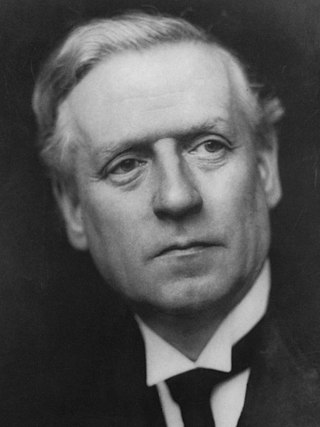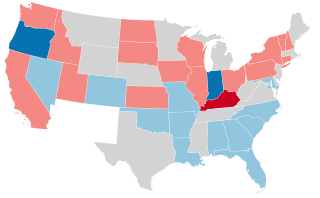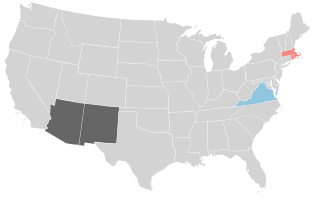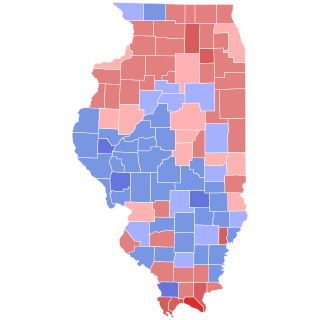
The December 1910 United Kingdom general election was held from 3 to 19 December. It was the last general election to be held over several days and the last to be held before the First World War.
The Liberal Party was a parliamentary party in Australian federal politics between 1909 and 1917. The party was founded under Alfred Deakin's leadership as a merger of the Protectionist Party and Anti-Socialist Party, an event known as the Fusion.
The 1908 United States House of Representatives elections were held for the most part on November 3, 1908, with Oregon, Maine, and Vermont holding theirs early in either June or September. They coincided with the 1908 United States presidential election, which William Howard Taft won. Elections were held for all 391 seats of the United States House of Representatives, representing 46 states, to serve in the 61st United States Congress.

The 1908–09 United States Senate elections were held on various dates in various states. As these U.S. Senate elections were prior to the ratification of the Seventeenth Amendment in 1913, senators were primarily chosen by state legislatures. Senators were elected over a wide range of time throughout 1906 and 1907, and a seat may have been filled months late or remained vacant due to legislative deadlock. However, some states had already begun direct elections during this time. Oregon pioneered direct election and experimented with different measures over several years until it succeeded in 1907. Soon after, Nebraska followed suit and laid the foundation for other states to adopt measures reflecting the people's will. By 1912, as many as 29 states elected senators either as nominees of their party's primary or in conjunction with a general election.

The 1909 Los Angeles mayoral special election took place on March 26, 1909, following the recall attempt of incumbent Arthur Cyprian Harper. George Alexander was elected over Fred C. Wheeler by a small plurality. It was the first election "ever held in any American city for the recall of a mayor." It was also the first election held after the charter amendment that instituted nonpartisan elections and made the office of Mayor nonpartisan.

The 1909 United States Senate special election in Pennsylvania was held on March 16, 1909. George T. Oliver was elected by the Pennsylvania General Assembly to the United States Senate.
The 1909 Dumfries Burghs by-election was a Parliamentary by-election held on 20 July 1909. The constituency returned one Member of Parliament (MP) to the House of Commons of the United Kingdom, elected by the first past the post voting system.

The 1909 United States Senate election in Pennsylvania was held on January 19, 1909. Boies Penrose was re-elected by the Pennsylvania General Assembly to the United States Senate. This was the last Class III U.S. Senate election to be decided by the Pennsylvania General Assembly before the ratification of the 17th Amendment to the U.S. Constitution, which mandated direct election of U.S. Senators.

The 1909 Hawick Burghs by-election was held on 5 March 1909. The by-election was held due to the resignation of the incumbent Liberal MP, Thomas Shaw. It was won by the Liberal candidate John Barran.
The 1909 Edinburgh South by-election was held on 4 March 1909. The by-election was held due to the incumbent Liberal MP, Arthur Dewar, being appointed Solicitor General for Scotland. It was retained by Dewar.

The 1909 Forfarshire by-election was held on 27 February 1909. The by-election was held due to the elevation to the peerage of the incumbent Liberal MP, John Sinclair who became Baron Pentland. It was won by the Liberal candidate James Falconer.
Elections to Liverpool City Council were held on 1 November 1909.

The 1928 United States Senate special election in Ohio was held on November 6, 1928, to elect a successor to Frank B. Willis, who died in office in March 1928. Republican U.S. Representative Theodore E. Burton, who previously held this seat from 1909 to 1915, won the open race to succeed him.

The 1909 San Diego mayoral election was held on April 6, 1909, to elect the mayor for San Diego. Incumbent Mayor John F. Forward Sr. and Grant Conard received the most votes in the primary election and advanced to the runoff. Conard was then elected mayor with a majority of the votes.
The Boston mayoral election of 1910 occurred on Tuesday, January 11, 1910. John F. Fitzgerald, who had been Mayor of Boston from 1906 to 1908, defeated incumbent George A. Hibbard and two other candidates.
The 1909 United Kingdom local elections took place in 1909 for municipal councils, as well as Rural districts. Municipal elections in Ireland took place in January. Municipal elections across England and Wales, and for Londons Metropolitan Boroughs, were held on Monday 1 November. Scotland held municipal elections the following day.

United States gubernatorial elections were held on November 2, 1909, in three states. Virginia holds its gubernatorial elections in odd numbered years, every 4 years, following the United States presidential election year. Massachusetts and Rhode Island at this time held gubernatorial elections every year. They would abandon this practice in 1920 and 1912, respectively.

The 1909 Massachusetts gubernatorial election was held on November 2, 1909. Incumbent Governor Republican Eben S. Draper was re-elected, defeating Democratic nominee James H. Vahey with 48.64% of the vote.

The 1908 Illinois gubernatorial election was held on November 3, 1908.

The 1908 Illinois gubernatorial election was held on November 3, 1908. It saw the election of Republican nominee John G. Oglesby.













